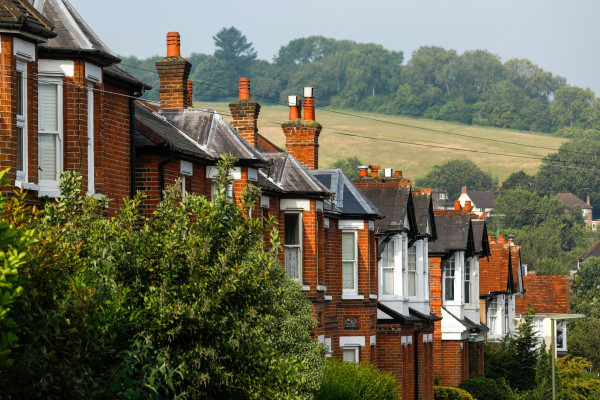

House prices climbed another 1.7 per cent last month pushing the value of a typical UK home above £260,000 for the first time.
Despite house sales starting to slow, house prices are continuing to rise. Over the last 12 months, the average UK home has gone up in value by £29,162.
According to Nationwide’s latest house price index, published today (March 2), this is the largest ever annual increase in cash terms since the bank started its monthly index 31 years ago in 1991.
On an annual basis, UK house price growth reached 12.6 per cent in February, up from 11.2 per cent in January.
“Competition among buyers is fierce, with multiple offers being received in many instances,” said Tomer Aboody, director of property lender MT Finance.
“Some vendors are selling before finding somewhere to move to, in order to take advantage of high prices, and opting for rented accommodation until the dust settles.”
With interest rates rising, Aboody said affordability is becoming even more of an issue, particularly for younger buyers struggling to afford their first home.
“Of course, the terrible war in Ukraine cannot be ignored, and how this might impact the UK,” he continued.
“With purses already squeezed as the cost of living rises, the Bank of England might reconsider its proposed interest rate increases in forthcoming months, in order to minimise the hit on consumers.”
Jeremy Leaf, a north London estate agent and a former RICS residential chairman, said it is “probably too early to gauge” the likely impact of the war in Ukraine on the housing market, but that the impact was “not much” if the first few days were anything to go by.
“We have already agreed [to] several sales at fairly robust prices this week,” he said. “The expected additional rise in the cost of living driven by energy prices and possibly interest rates will reduce confidence to take on extra debt and make buyers even more determined not to overpay.”
Although interest rates are rising, Mark Harris, chief executive of mortgage broker SPF Private Clients, highlighted that rates “remain at comparatively low levels from an historical perspective” which meant stretched affordability “has not yet become a widespread issue”.
He continued: “Although if prices continue rising at this pace, it may well become more of an issue…Fears that banks will act irresponsibly and lend much more than borrowers can afford to repay are likely to be wide of the mark. Banks will [be] keener to attract high income households with relatively low expenditure, who can best afford to cover increases to their mortgage payments.”
Some were also quick to point out this data is “behind the curve” because it is based on house sale completions. As a result, Phillip Stevens, director of Richmond estate agency Antony Roberts, said there is probably “a little more caution out there than these numbers indicate”, as buyers continue to face a lack of choice due to lack of stock.
“While these figures show that the national average property price is rising, the reality is there isn’t one single market – what is happening with prices is very different depending on the profile of the property,” he said.
“Flats without outside space are still struggling to sell and will come off in value whereas houses are few and far between and increasing in value. As long as there is a shortage of supply and significant demand, pricing will be bullish.”
ruby.hinchliffe@ft.com



